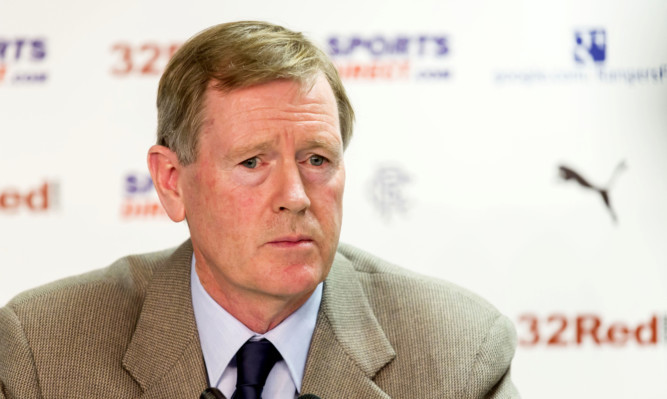Dave King claims Rangers teams gained no advantage from the contentious tax schemes put in place during the first decade of the century – despite admitting some players would not have signed for the club under different financial arrangements.
The Rangers chairman, who was an Ibrox director during the period under scrutiny, argued that shareholders would still have funded expensive signings as he vowed to fight any attempts to strip the club of titles won in the 2000s.
The debate was reignited by Her Majesty’s Revenue and Customs’ appeal victory over Murray Group companies which used Employee Benefit Trusts, including the now liquidated oldco Rangers.
Scottish league bosses have discussed the outcome amid calls from some fans and former Celtic player Darren O’Dea to reopen the case, which saw Rangers hit with a £250,000 fine for failing to disclose dozens of payments to players.
Lord Nimmo Smith, who chaired an independent commission into the issue, declared in 2013 that Rangers gained no sporting advantage but three Court of Session judges last week argued that a number of players would have taken their services elsewhere had it not been for the £48million tax-free payments.
In a lengthy statement, King said: “First, irrespective of the final outcome of the tax appeal (which might take several more years) the football team had no advantage from any tax savings from the scheme put in place by the Murray Group. Throughout the period in question the shareholders were committed to providing funding to the club.
“The tax scheme may have reduced the need for shareholders to provide higher levels of funding so, as I have tried to make clear in the past, any advantage gained would have been to the company and its shareholders, not the team.
“Certain players may not have signed for the club without the perceived benefit of personal tax savings but there was no general advantage for the player squad, or the performance on the pitch.
“We would still have signed players of equal abilities if one or two had decided they didn’t want to sign under different financial circumstances.”
King had previously apologised for the tax scheme and was quoted in June 2012 as saying: “I follow the logic of the argument that if we lose the tax case then we probably gained some competitive advantage.”
However, he claimed it was “extraordinary” that other club representatives would re-engage with the issue given they have admitted Rangers’ top-flight absence has damaged Scottish football.
King added: “It is time those individuals, who represent other clubs, recognise their legal and fiduciary responsibilities to their own clubs and shareholders rather than submit to the uninformed ramblings of a few outspoken fans to whom attacking Rangers is more important than the wellbeing of their own clubs.
“This is a misguided attempt (that will ultimately fail) to rewrite history and defeat Rangers off the park when their teams could not do so on the park at the time. The history of many other clubs would have to be rewritten if this illogical argument was to be consistently applied.
“Having reviewed documentation that has become available to me I believe that Rangers was harshly and, in some instances, unfairly treated in the period leading up to demotion from the Premier League.
“However, that is now history and I have publicly stated, with the full support of the recently installed board, that we wish to put the past behind us and move on in partnership with all clubs throughout Scotland to improve and restore the image and quality of Scottish football as a whole. This will be to the benefit of all clubs.
“For the avoidance of doubt, however, I wish to make one point clear. If the history of our club comes under attack we will deal with it in the strongest manner possible and will hold to account those persons who have acted against their fiduciary responsibilities to their own clubs and to Scottish football.”
